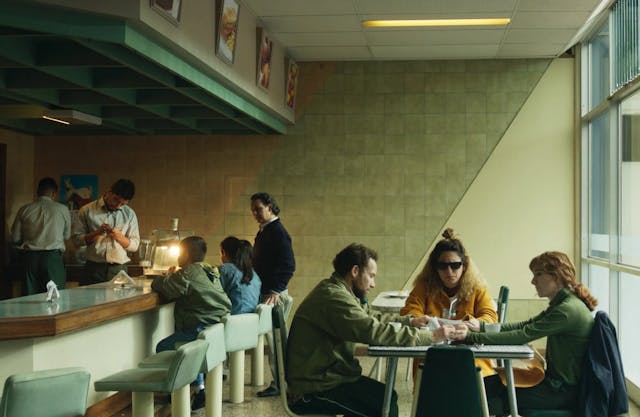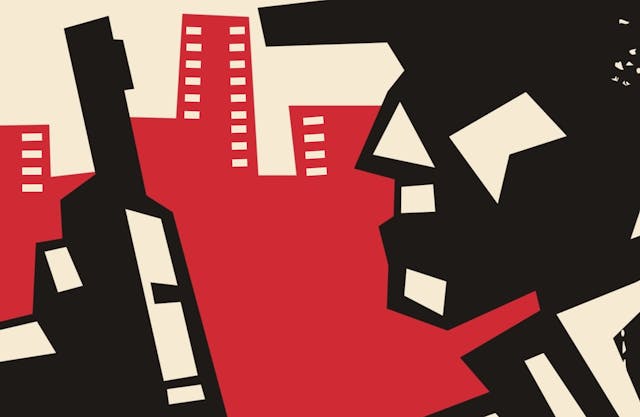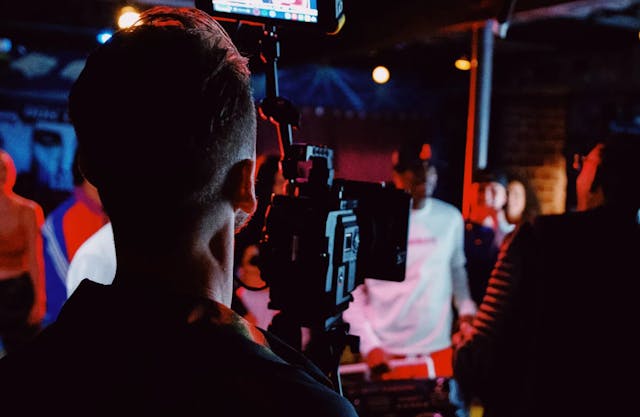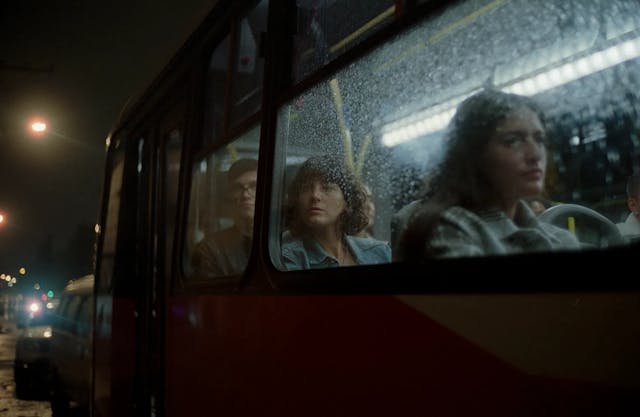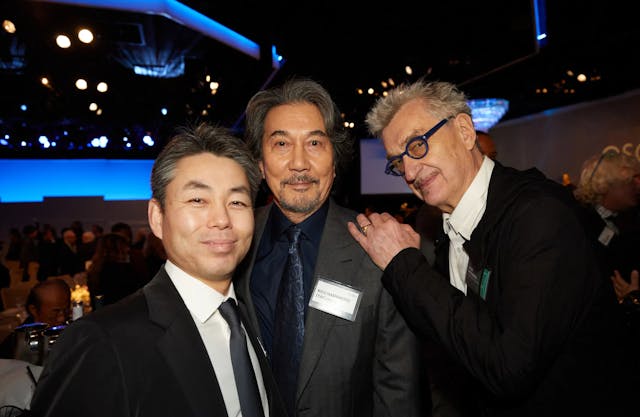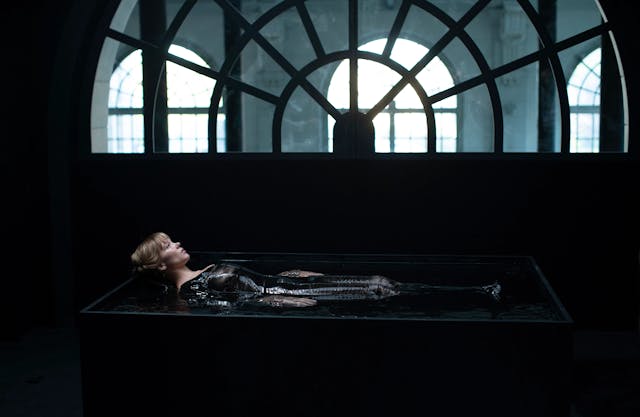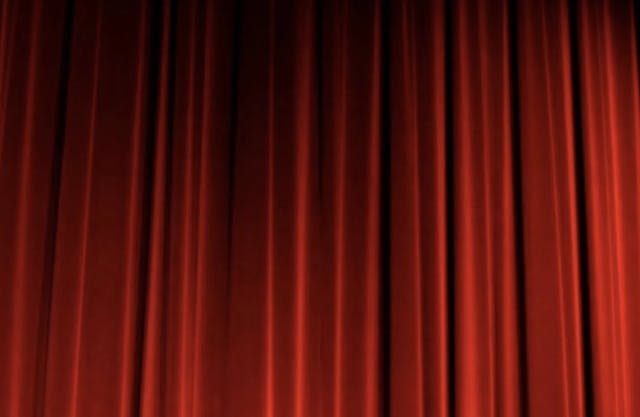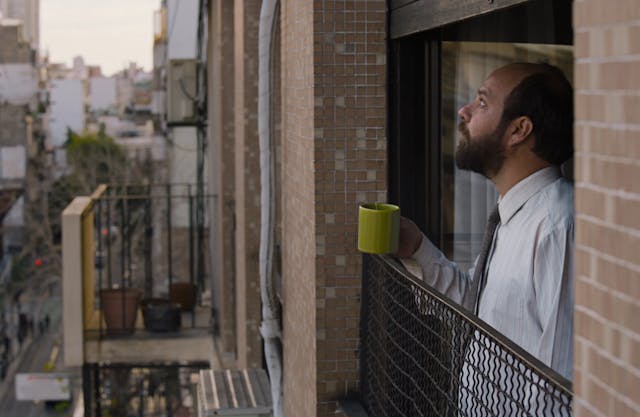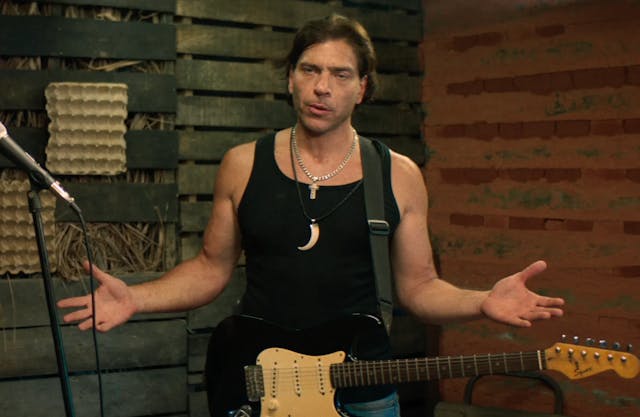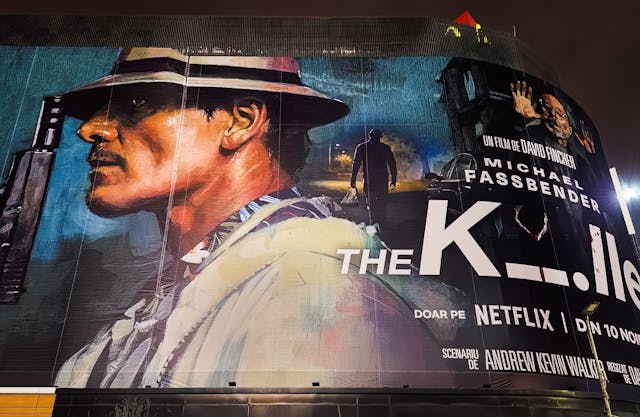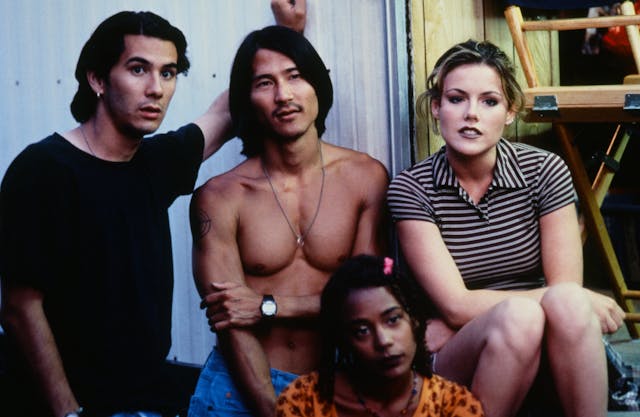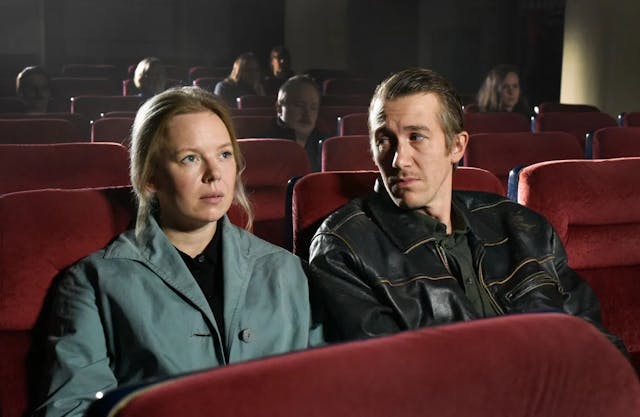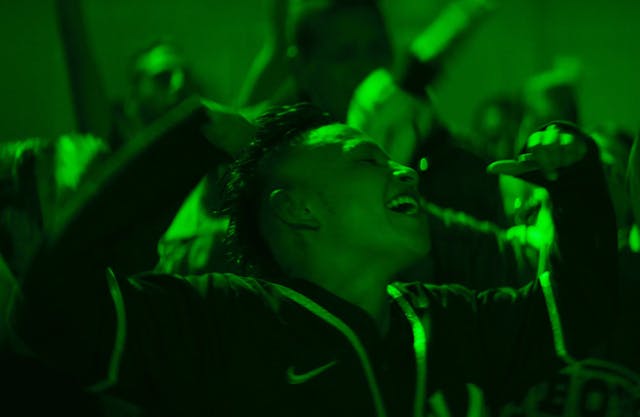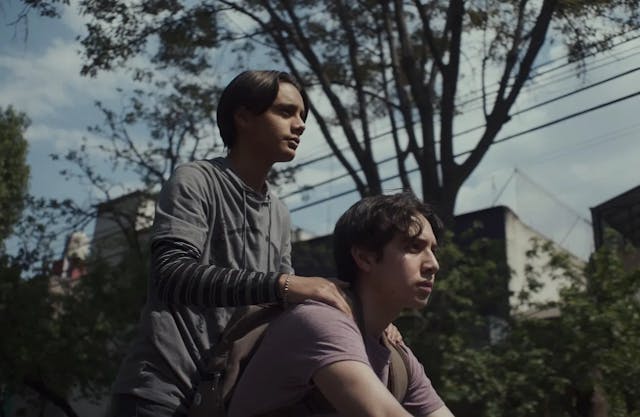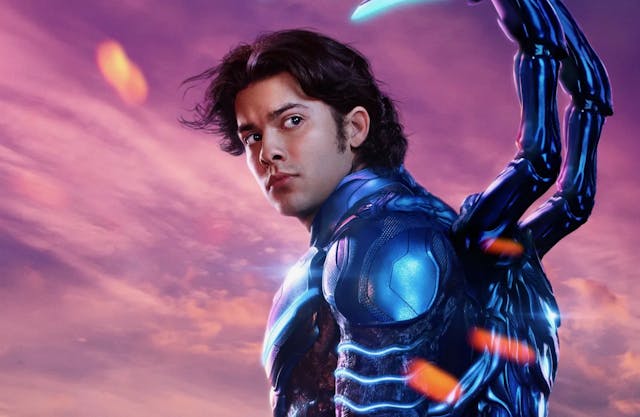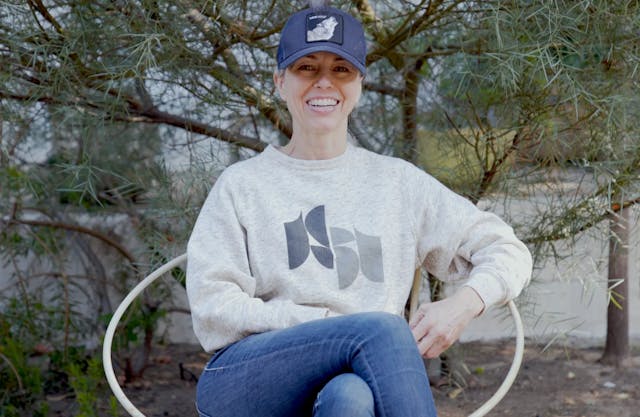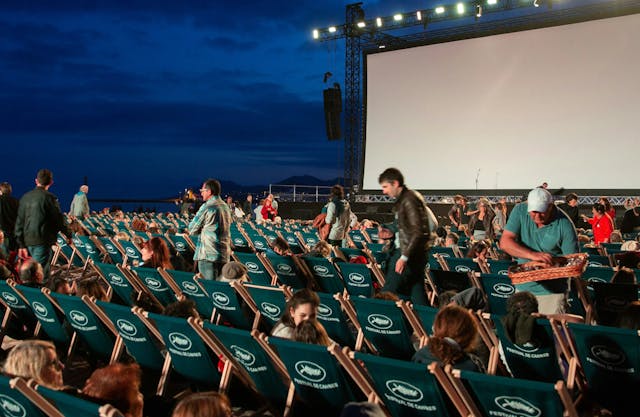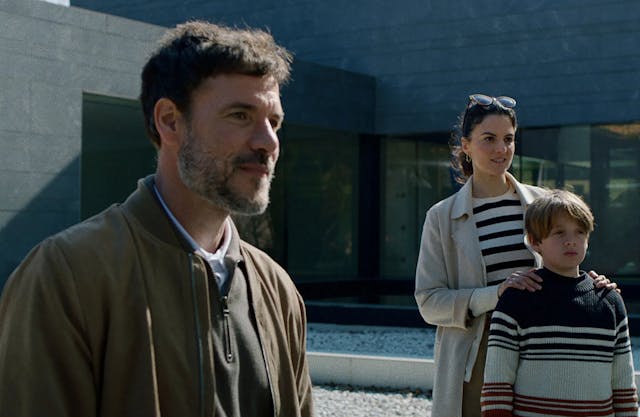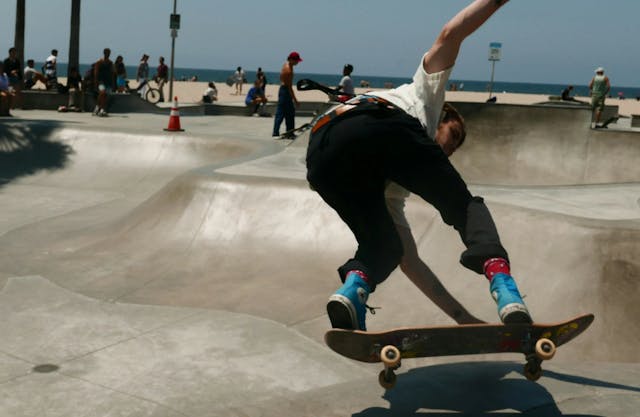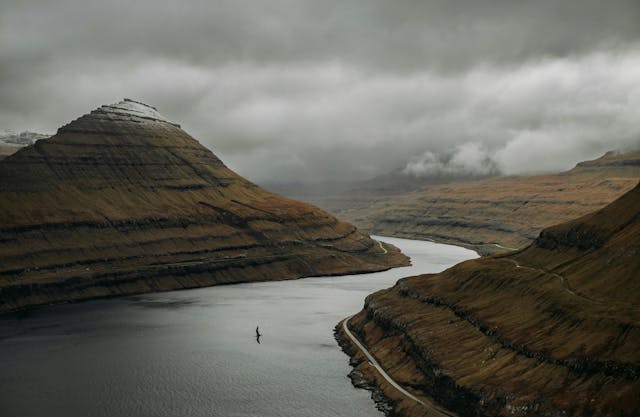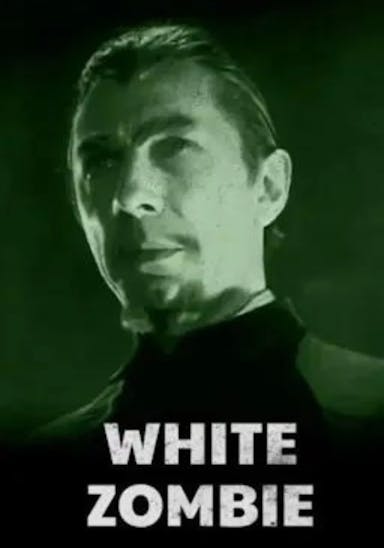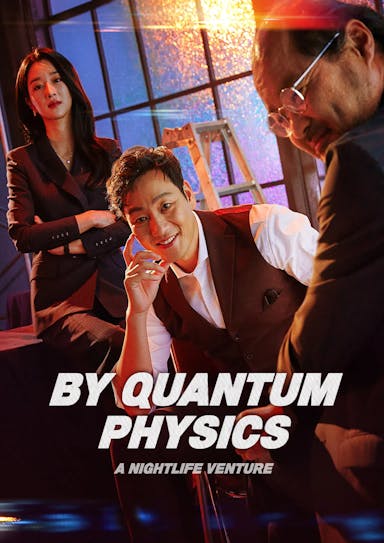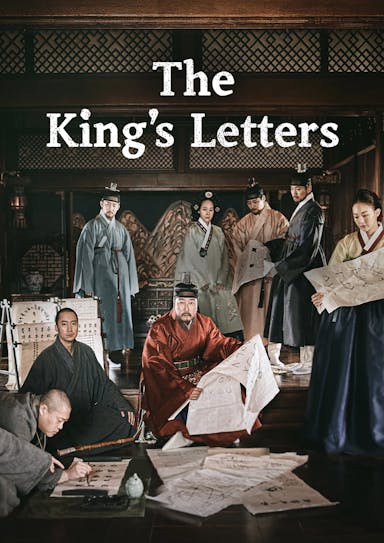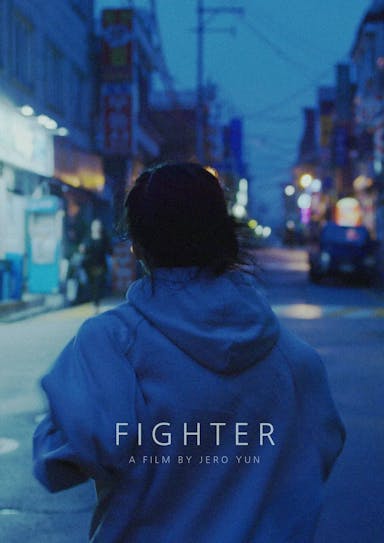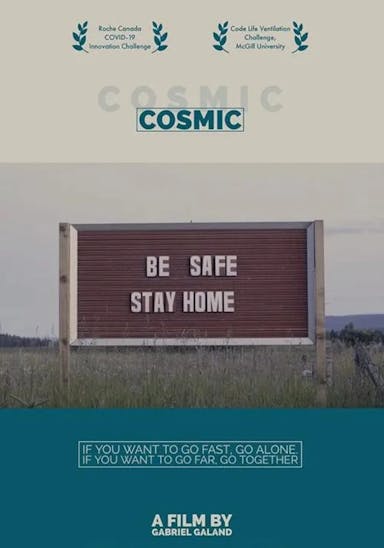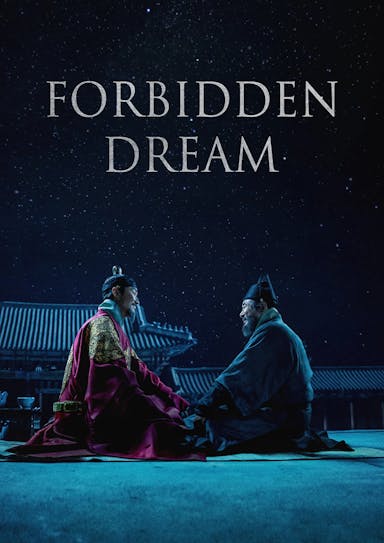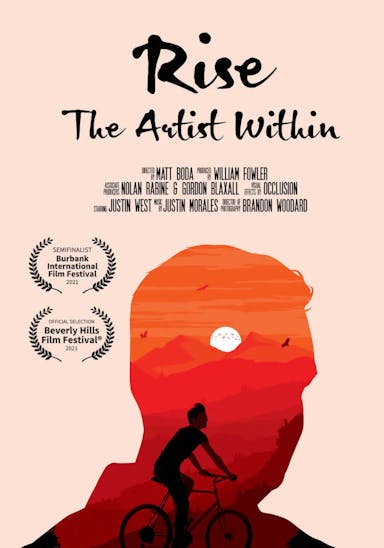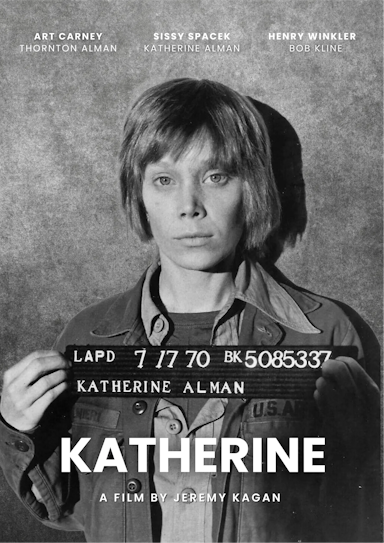"The Delinquents" Hit The Art House: Rodrigo Moreno's Criminal Wonder
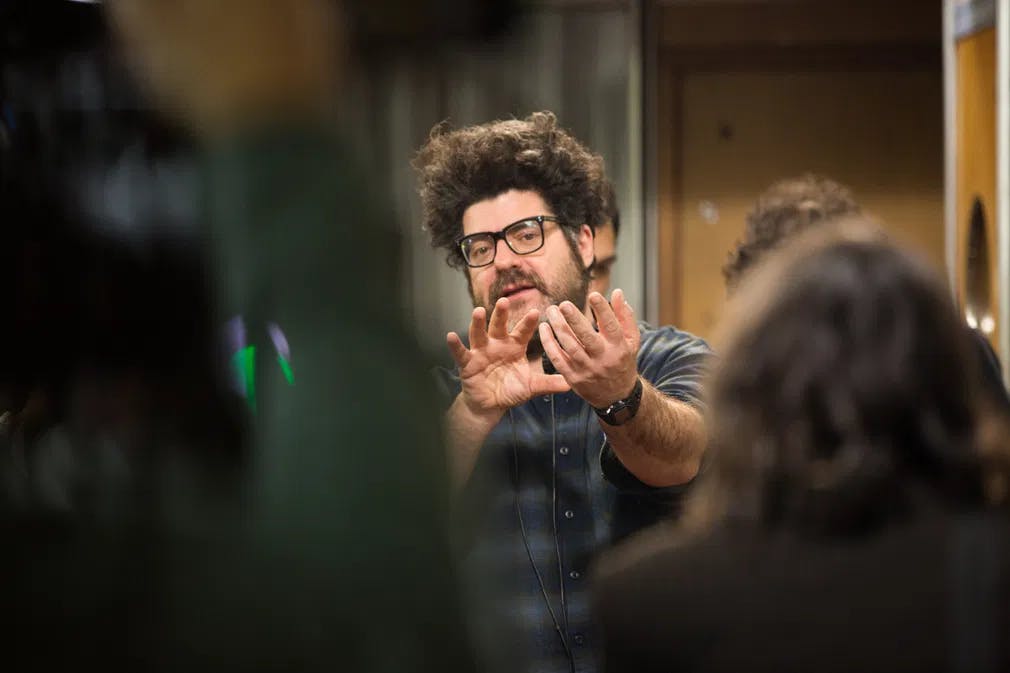
Stealing hearts & minds: Rodrigo Moreno shooting "The Delinquents" / Photo by Kira Newmark, courtesy of MUBI.
“This is such a strange film,” says Rodrigo Moreno, somewhat mystified about the success of “The Delinquents.” His latest feature-length work premiered at the Cannes Film Festival, where MUBI acquired the film from Magnolia International. Argentina submitted it as a candidate for the Best Foreign Film Oscars. After playing at the 61 New York Film Festival, it opened at Lincoln Center and the Angelika in New York City, with more cities to follow.
A Risky Bet for Oscar Season
The last time Argentina scored an Oscar was with Juan Jose Campanella’s “The Secret In Their Eyes” (2009). They had a strong contender in 2023 with “Argentina 1985” (Santiago Mitre, 2022), but the German war epic “All Quiet in The Western Front” (Edward Berger, 2022) stole its thunder. Moreno remains nonplussed about its prospects. “The stakes are very high. There are very strong international films this year. So, we’ll see if we can sneak in there. “The Delinquents” is such a rare and strange film. If they choose to be one of the five nominees, it will speak well of the academy more than it speaks well.” We interviewed Moreno as he arrived in Los Angeles to promote the movie and prepare for the Oscar campaign. An Oscar can open up the doors of Hollywood for international directors, but Moreno is practical. If anything, he wants easier access to funds to keep on working.
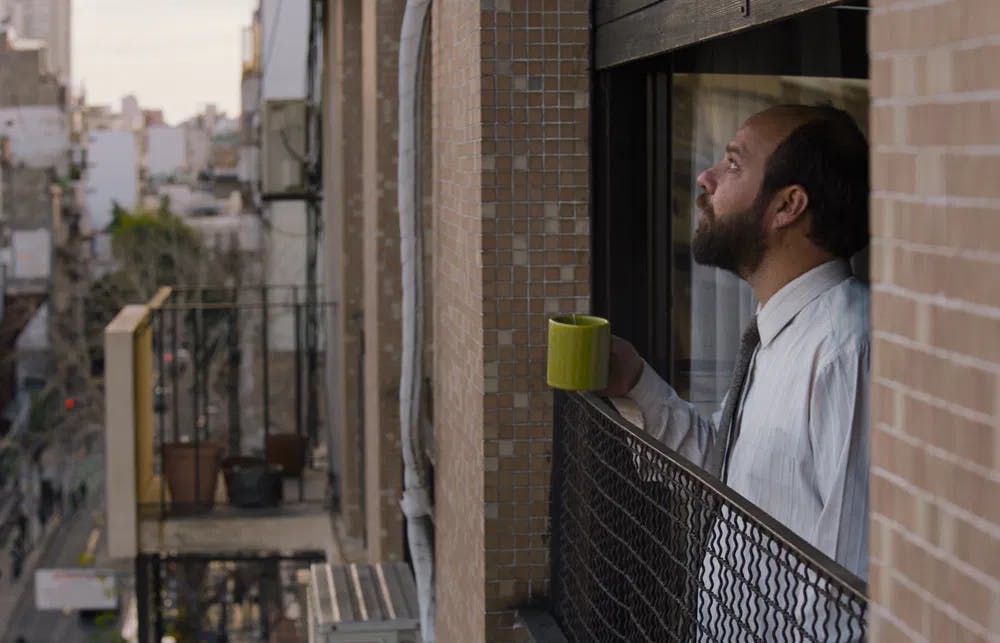
Morán (Daniel Eliás) on the eve of his big heist in "The Delinquents" / Photo by Kira Newmark, courtesy of MUBI.
A Heist Film With An Existential Twist
One thing is sure: crime movies rarely work like this. “The Delinquents” springs with the promise of that sturdy, criminally fun genre: the heist film. Morán (Daniel Elías) works at a bank, but not for long. He plans to stage a robbery that should set him up for life but within the boundaries of his moral code. He will take the amount equal to his salary earnings and retirement fund and a similar amount for a necessary accomplice. He sets his sights on Román (Esteban Bigliardi), a teller with all the makings of an office drone. Once Morán performs his daring feat, he ambushes his coworker with the proposal: keep the money hidden for three years while he serves his time. What will Román do, and why?
It's a complicated moment for Argentina. The country is on the eve of a high-stakes presidential election, with Trump-like Libertarian candidate Javier Milei ahead in the polls. A permanent economic crisis makes everyday life difficult. At any given moment, there might be 40 different exchange rates for the dollar. Even if the plot's inciting incident hinges on money, like his protagonist, there is nothing further than riches in the director's mind. "'The Delinquents' speaks about something more universal, something dealing not with an economic question, but an existential question, a relationship we have with the use of time, not with the help of money," says Moreno.
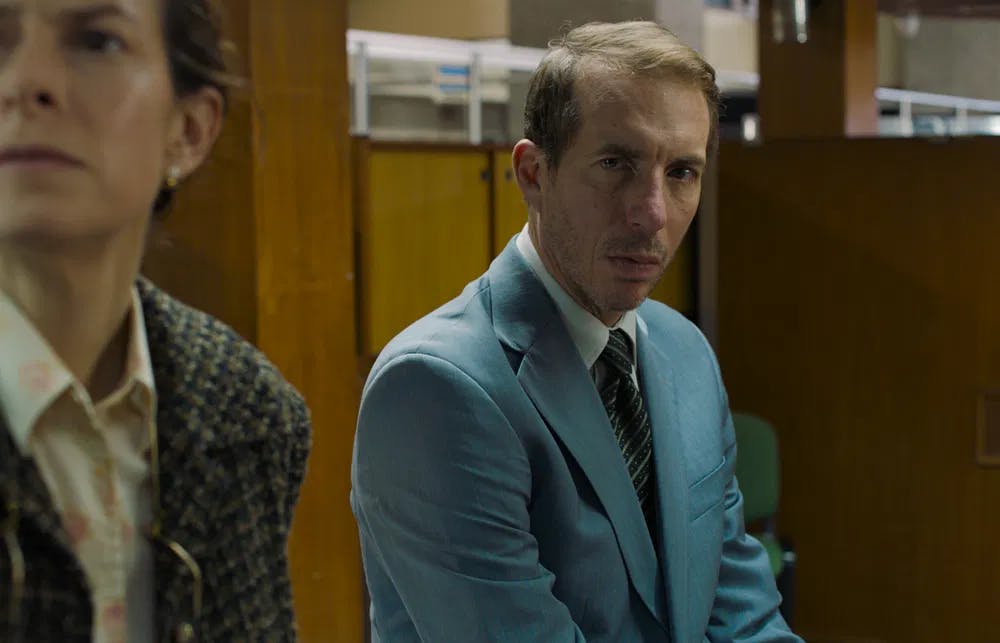
The accidental accomplice, Román (Esteban Bigliardi), faces an investigation in "The Delinquents" / Photo by Kira Newmark, courtesy of MUBI.
The nature of work is subjected to a merciless satire, as we spend time in the bank where Morán and Román burn out their precious time counting other people’s money. The setting has a timeless quality, making it intentionally difficult to pinpoint when the events occur. “ I was trying not to be beholden to reality,” says Moreno. The representation of the film is not based on realism. I had to create a fable because it is impossible for this robbery to happen nowadays. The banking activity is very digitalized, very computerized. Therefore, the relationship we have with material money is very mediated.”
A Triumph of Human Resources...I Mean, Casting!
“I have to detach myself a bit from reality to create the feeling of a fable… but I liked the contradiction that the film should not remain isolated in a bubble of unreality, but rather, I wanted to have reality participate somehow.” You get a dose of reality in the almost documentary-like way Moreno films the streets of Buenos Aires as we follow Morán going to work. “If I were to film a bank today, as a bank is today, it seems such a boring place to film, so uninteresting to film. I preferred to assemble, to invent something that looks like it came from the 70’s. The material relationship I have with the present is complicated.”
This timeless bank is populated with a crackerjack ensemble engaged in an exquisite workplace comedy. Standouts include Germán de Silva as a smarmy manager and Mariana Chaud as a milquetoast teller. Besides the magnificent production design, wardrobe, and hairstyling choices, an uncanny event opens the gates to the uncanny wide open. An older woman comes in to cash a check, but her signature is the same as another client's. The actress Adriana Aizemberg is Moreno's mother. "I had never hired her, and she accused her of that. She would always say, 'You never give me any roles!' So, we got that out of the way!"
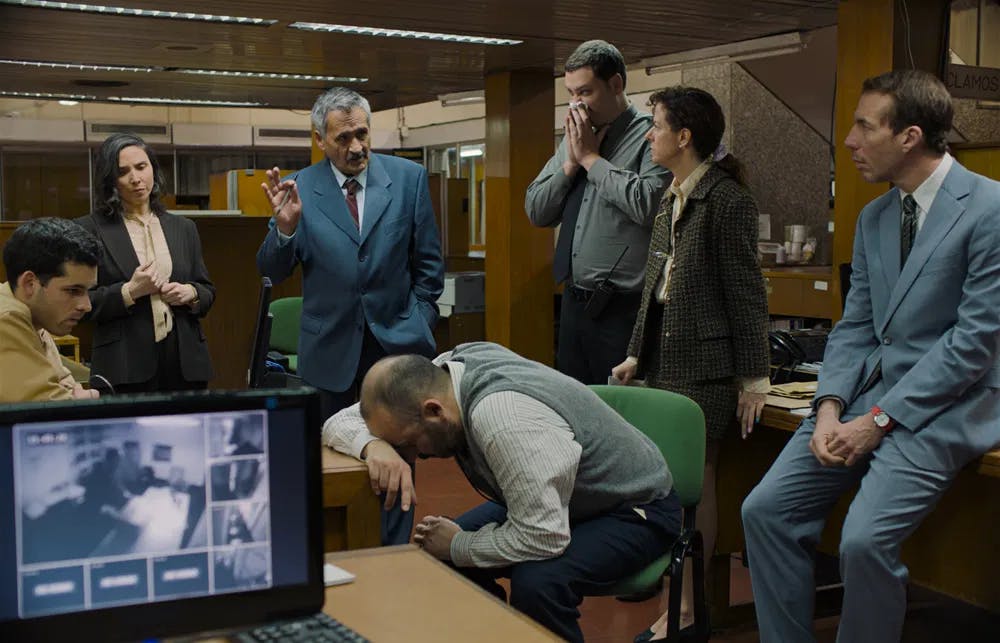
Paredes, de Silva, Chaud, Bigliardi, and the rest of the staff face the consequences of a robbery in "The Delinquents" / Photo by Kira Newmark, courtesy of MUBI.
Most of the cast comes from a standout crop of Argentinian actors crossing over gracefully from stage to screen. “It was the longest shoot of all,” says Moreno.” It took us about two whole weeks, but we had a lot of fun, especially because the actors already knew each other very well from the theater… I knew they had a common language and would happily work together.” The workplace shenanigans get an extra kick when Laura Paredes arrives as an insurance adjuster to investigate the robbery and look for Morán’s accomplice. You might recognize her for her peerless work in the ensemble piece “La Flor” (Mariano Llinás, 2017), her show-stopping scenes as a victim of the military dictatorship in “Argentina, 1985” (2022), or this year’s “Trenque Lauquen” (Laura Citarella, 2022).
A Countryside Escapade
"The Delinquents" takes off on a tangent as things pick up. Morán goes to jail, and Román leaves the city behind to follow his orders and hide the money in the countryside. I was so engaged with the characters in the bank that I resented the change. I wanted more, and I was not the only one. "While we were shooting the bank, the actors told me, 'Let's make a series, let's make a series that's us in the bank!' Each episode follows one of the characters.' "It was very nice what happened in the bank… maybe I'll pick it up again, and maybe I'll do something with it." Thank God. I need to know if his mother ever cashed the check.
This is where the movie performs a spectacular narrative bait-and-switch that reminded me of Cornelio Poromboiu's "Police: Adjective" (2009). That unassuming classic of the Rumanian New Wave also takes a popular genre - the police procedural -, filters out the most sensational elements, and anchors an existential quest on a menial crime. The stakes seem low until it dawns on you that we are dealing with the biggest jackpot: having a life worth living. It would be best to get on the movie's wavelength, settling down on a contemplative, deliberately slow pace. Scenes of blissful, pastoral beauty were shot in Córdoba, the same province that provided the setting for the last chapter of "La Flor." A romantic subplot blooms with pure Rohmer-esque charm.
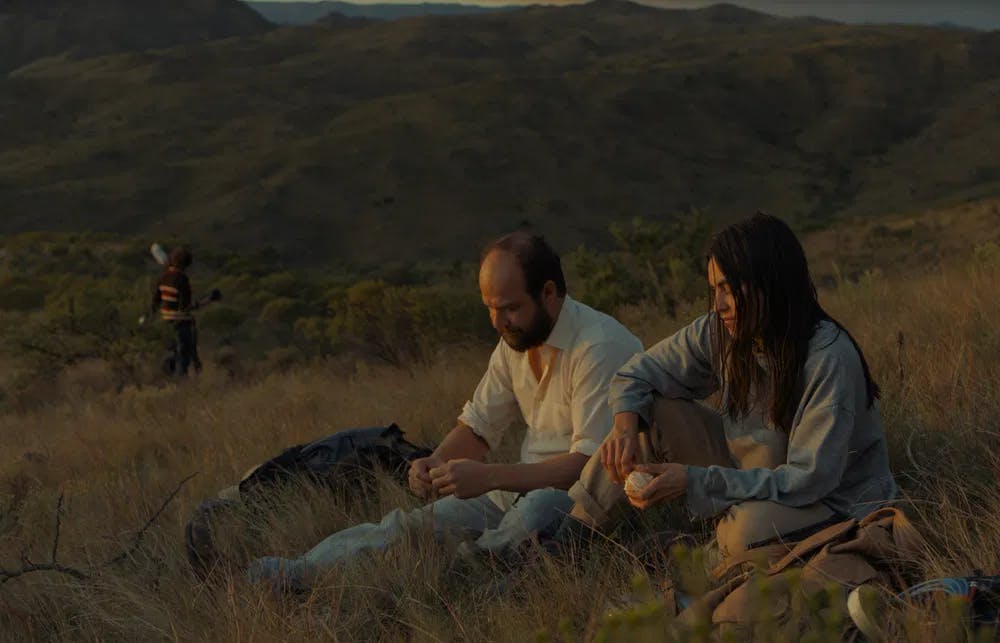
Country feedback: Elías and Molfino find love in the rolling hills of Córdoba in "The Delinquents" / Photo by Kira Newmark, courtesy of MUBI.
It's a risky move that might alienate audiences looking for pulse-pounding intrigue, but Moreno is not worried about it. "The spectator lives alienated, as we all live alienated, more precisely harassed, our existences so dwarfed by our relationship with work, by the kind of narrative we consume or are made to consume. Let's say it's the other way around! I think it is a liberation for the viewer!" He adds, "One always runs a risk, of course, but I think this is like an operation of liberation of the spectator. I give the viewer speculation, and I am in charge of denying it all the time. In other words, it looks like there will be a betrayal! Rest assured, there is not going to be a betrayal. There is going to be something better than that. It looks like they are going to be discovered. Stay calm. They will not be discovered. The plan is going to work. That is to say, all the time, that tension is in the spectator, but it is not in the film. And that is liberating because the film always proposes a luminous, happy exit."
To reach that happy exit, you go through some whimsical detours. At the prison, Morán is blackmailed by a criminal overlord played by Germán de Silva, the same actor who plays his boss in the bank. He even repeats an offhanded comment about the kind of sausage he asks his wife to put in a stew. A master thief behind bars and a capitalistic drone are the same. An agent of oppression at hand to make your life miserable. Doubles and doppelgängers also come up in Román’s escapade. By a riverside, he joins a group that includes sisters Norma (Margarita Molfino) and Morna (Cecilia Rainier). They are taking a break from helping out filmmaker Ramón (Javier Zoro), who is shooting a documentary about gardens. They invite him for a picnic and perhaps something more.
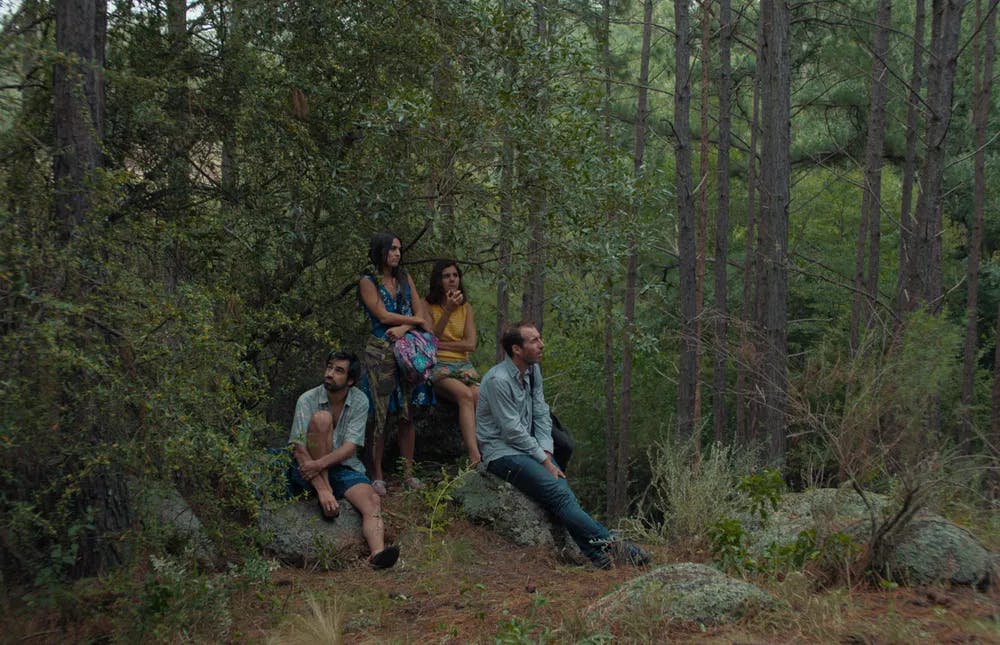
Nature boys & girls: Zoro, Bigliardi, Molfino, and Rainiero come together in "The Delinquents" / Photo by Kira Newmark, courtesy of MUBI.
Check out the names Román, Morán, Norma, Morna, and Ramon. They are all anagrams. I thought it was a sign of the universality of the human experience. Scramble a few letters, and we are all the same. Our life could just as easily be somebody else's. Moreno's playfulness allows for multiple interpretations. "It all started as a game when I wrote: 'Let all the characters have almost the same name.' As it usually happens to me, it starts as a game and then takes on a meaning. The film presents an idea of duplicity, of two equal destinies organized in different ways. In a way, they are also anagrammatic. This idea of an actor playing two roles is an anagram in itself. First, he is a bank manager, then we see him as a leader in the prison ward. That makes sense later. And therein, perhaps, lies a key to how I work. I don't work with a notion of control of every element. I roll out a series of ideas and a series of things that I then see if they work or not. They may not even work and remain in the film."
Raiding The Toolshed Of Classic Filmmaking
The freedom of this experiment is supported by a masterful deployment of classic resources of cinema language and aesthetic gestures that have fallen in disuse and contribute to imbuing the movie with that sense of timelessness. Check out the expressive dissolves bridging scenes or the sly use of a split screen to connect Morán and Román through time and space with congruent movements - at one point; it seems like the man in jail hands his accomplice something over the cut frame. It’s not just a gag. It strengthens the idea that Moran and Román are the same. They share the letters of their names and a common destiny.
“The Delinquents” is a treasure trove of cinephilia. Moreno has recognized inspiration in “Hardly A Criminal” (Hugo Fregonese, 1949), a classic Argentinian Noir - here’s my plight to Flicker Alley, the Film Noir Foundation and the UCLA Film and Television Archive for them to put it out in home video, to complement their sterling editions of “The Bitter Stems” (Fernando Ayala, 1956) and “The Beast Must Die” (Román Viñoly Barreto, 1952) -. French director Jacques Rivette is the most obvious influence, but everybody can find their echoes in such a sprawling, generous movie. Besides Poromboiu, I felt a kinship between Moreno and Hal Hartley, and even David Lynch - those bank scenes reminded me of the lighter Las Vegas moments in “Twin Peaks: The Return” (2017) -. Any movie buff will recognize his favorites.
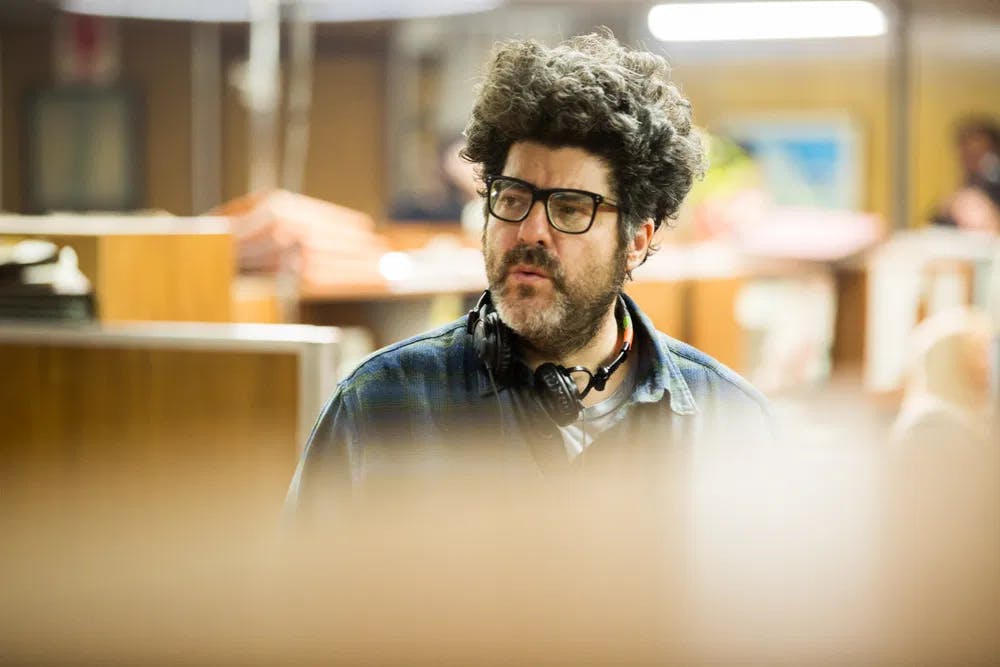
Take it to the vault: Moreno directing the bank scenes in "The Delinquents" / Photo by Kira Newmark, courtesy of MUBI.
At heart, “The Delinquents” is all Moreno’s, nourished by his love of film. “I have to use the gestures of cinematographic language that are increasingly in disuse. When platform TV series emerged, we all said, ‘Well, finally! TV series will look like the movies!’…And today, films look like TV series, so we have a problem. It is as if cinema is losing part of the strength of its language. Its language is turning spineless. Cinema is in crisis throughout the world. It seems to me that the remedy lies a bit in its past. The future is a bit in its past, but not in the conservative sense. In the sense of how immensely rich the history of cinema is and the cinematic forms that developed throughout time. All that long experimentation that our predecessors did with the language of cinema... we have to pick up that gauntlet.”
Film production in Latin America is akin to making low budget movies in the United States. This cinematic dream did not come easy. Part by design, part by necessity, Moreno filmed in fits and starts. "I already had the intention of shooting the film in parts. I didn't see myself capable of filming the whole movie…we started filming without having all the financing because we had money from a Chilean fund that expired that year. Then, we spent the following year looking for money to complete the financing. It helped a lot to have something already filmed. In 2020, we resumed shooting, and then the pandemic hit. We were going to film in 2021, but I got COVID, and the conditions were not right. Vaccines arrived late in Argentina.
We reconvened at the end of the 21st, and all of us were vaccinated. And then the main actor, Esteban Bigliardi, went for nine months to Europe to shoot Juan Antonio Bayona's "Society of The Snow." Thus, we are paralyzed again. Now, during all that time, I was also rewriting. I was rethinking the film and editing it. It wasn't wasted time. I didn't suffer that much. There were some moments when I was a bit more restless and anxious, but I generally enjoyed it. It was a very long process."
There is something poetic in that a movie that takes its time took four and a half years to shoot. But it folds in perfectly with Rodrigo Moreno’s ethos. “If I have obstacles, there’s a reason this happens. I like to be a little less hostile to the surrounding hostility.”
Want to get an email when we publish new content?
Subscribe today